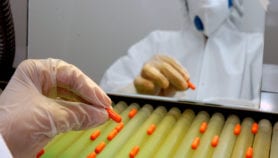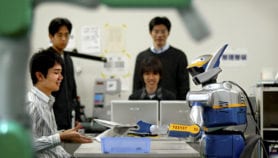By: Ella Syafputri
Send to a friend
The details you provide on this page will not be used to send unsolicited email, and will not be sold to a 3rd party. See privacy policy.
Malaysia has allocated RM12 billion (US$3.5 billion) in its 2008 budget to research and development (R&D), and commercialisation of science and technology in universities.
Most of the money will go to four research universities: Universiti Sains Malaysia, Universiti Kebangsaan Malaysia, Universiti Malaya and Universiti Putra Malaysia. Each will receive at least RM400 million (US$116 million) for their research programmes.
And under new proposals, researchers will receive an 80 per cent royalty payment on any research that is successfully commercialised, reported The Star newspaper. Researchers currently receive 50–70 per cent royalties.
Muhammad Idiris Saleh, a professor at Universiti Sains Malaysia, said the increase was "very encouraging" and would speed up the entry of indigenous technology into commercial markets.
Muhamad Rasat Muhamad, Universiti Malaya vice-chancellor, called the increase "very significant" and said the four designated universities can now plan and intensify R&D and commercialisation activities.
Apart from boosting basic and applied research, the money will also help improve infrastructure and develop a better system for commercialisation, he added.
"Presently, even though many patents are filed and registered, commercialisation generally is still unsatisfactory," Rasat told SciDev.Net.
Rasat said the increase in royalty payments would "hopefully spur more serious effort and focus on R&D activities and commercialisation in research universities and other institutions, public or private".
Ibrahim Komoo, deputy vice-chancellor of research and innovation at UKM, told The Star the increased budget allocation was important because commercialisation "needs 10 times more money than the research grants given".
The increased funding sets a good example for other east Asian countries, said Umar Anggara Jenie, chairman of Indonesian Institute of Sciences, told SciDev.Net.
"This policy will set a new trend for east Asian countries to boost their research and development budget as a way to indicate national awareness on the importance of science and technology development."













